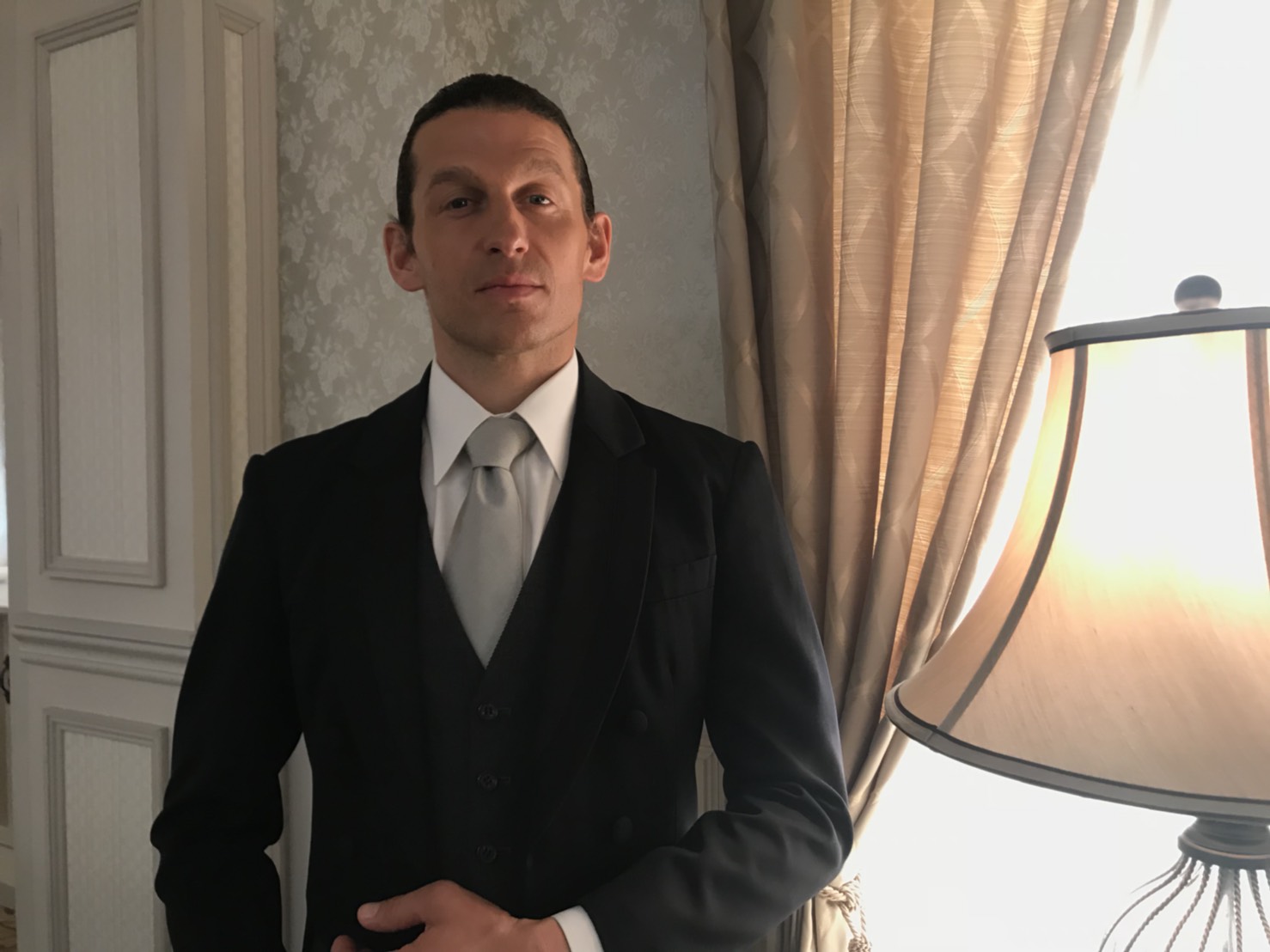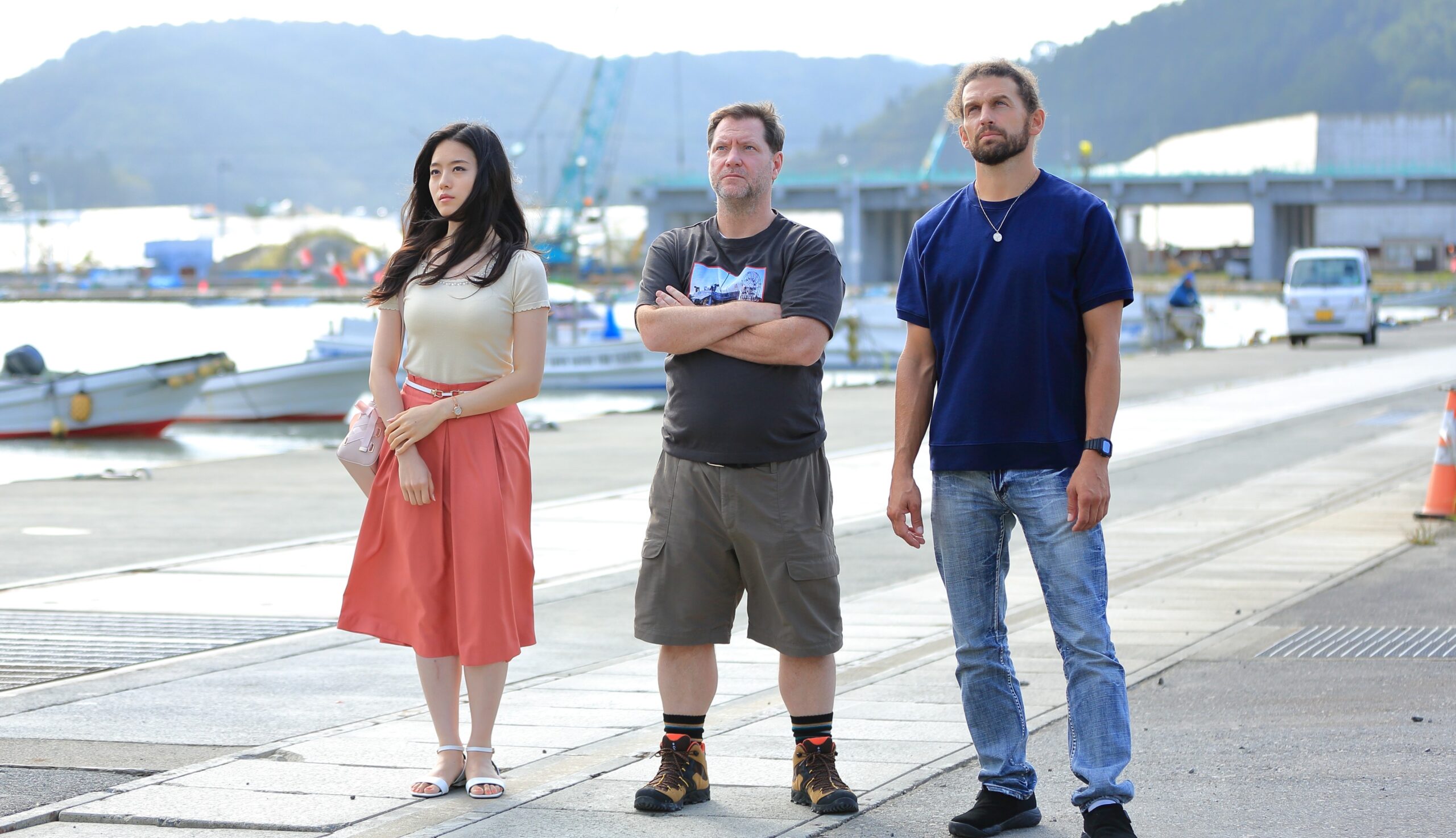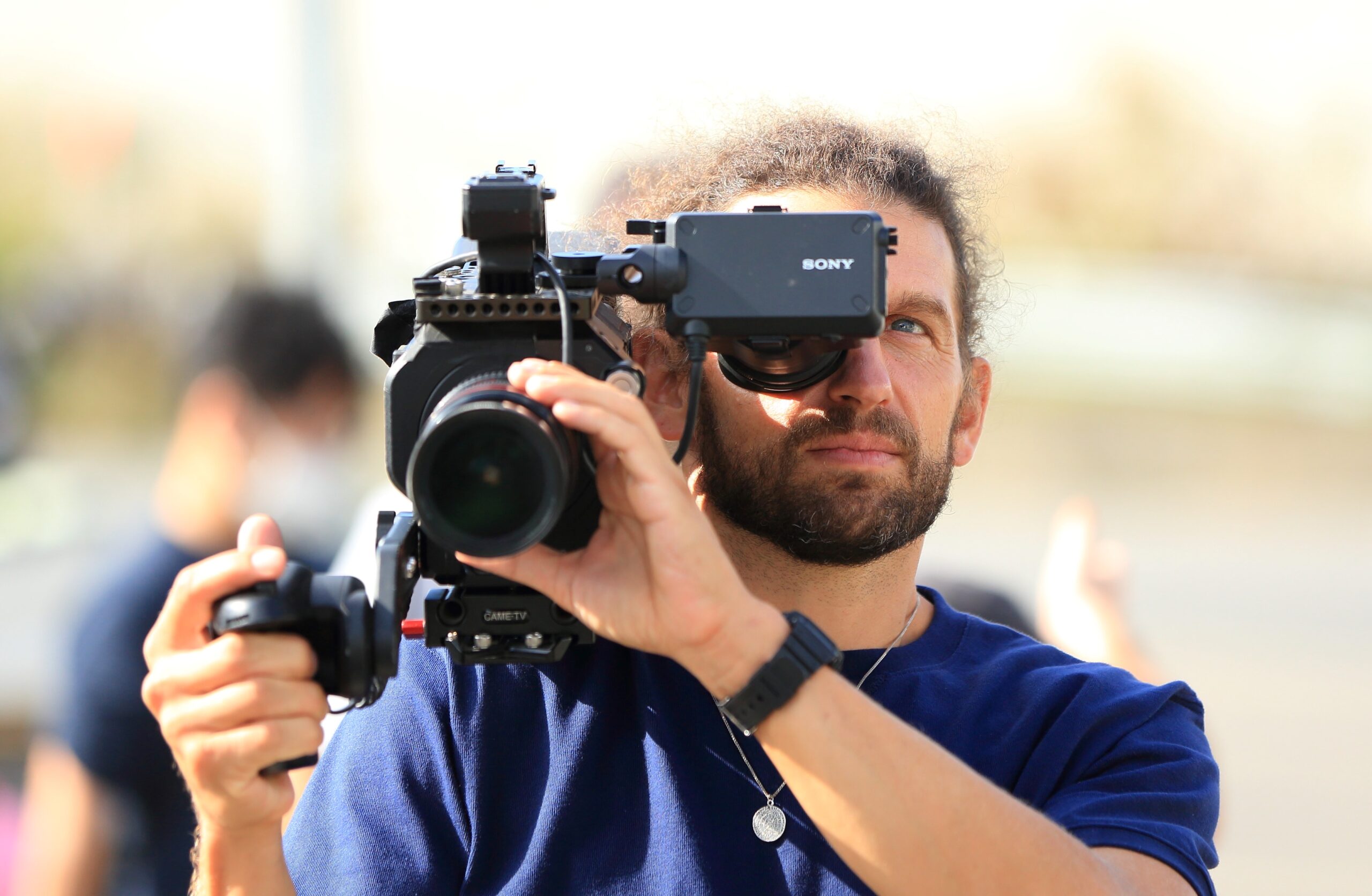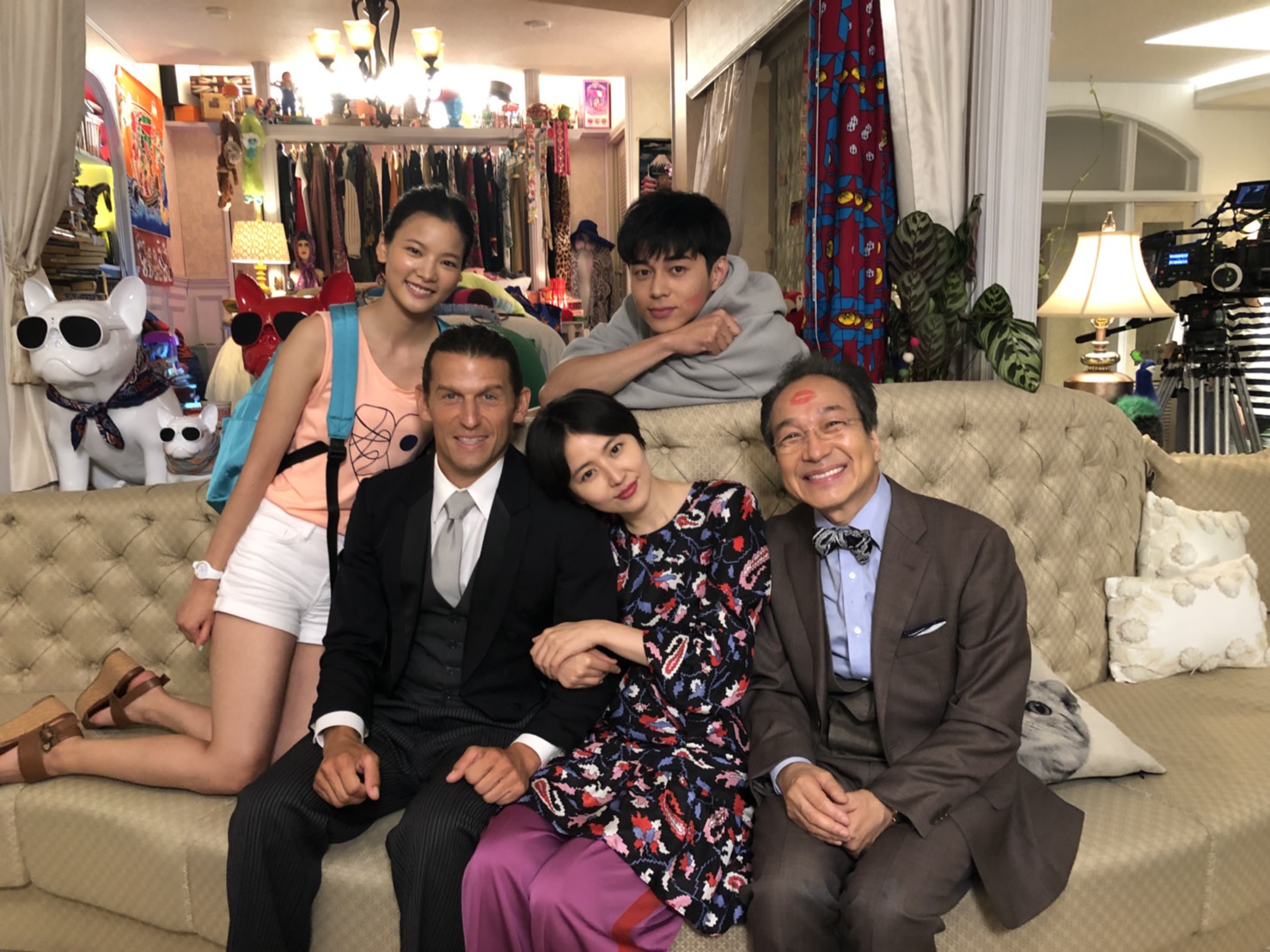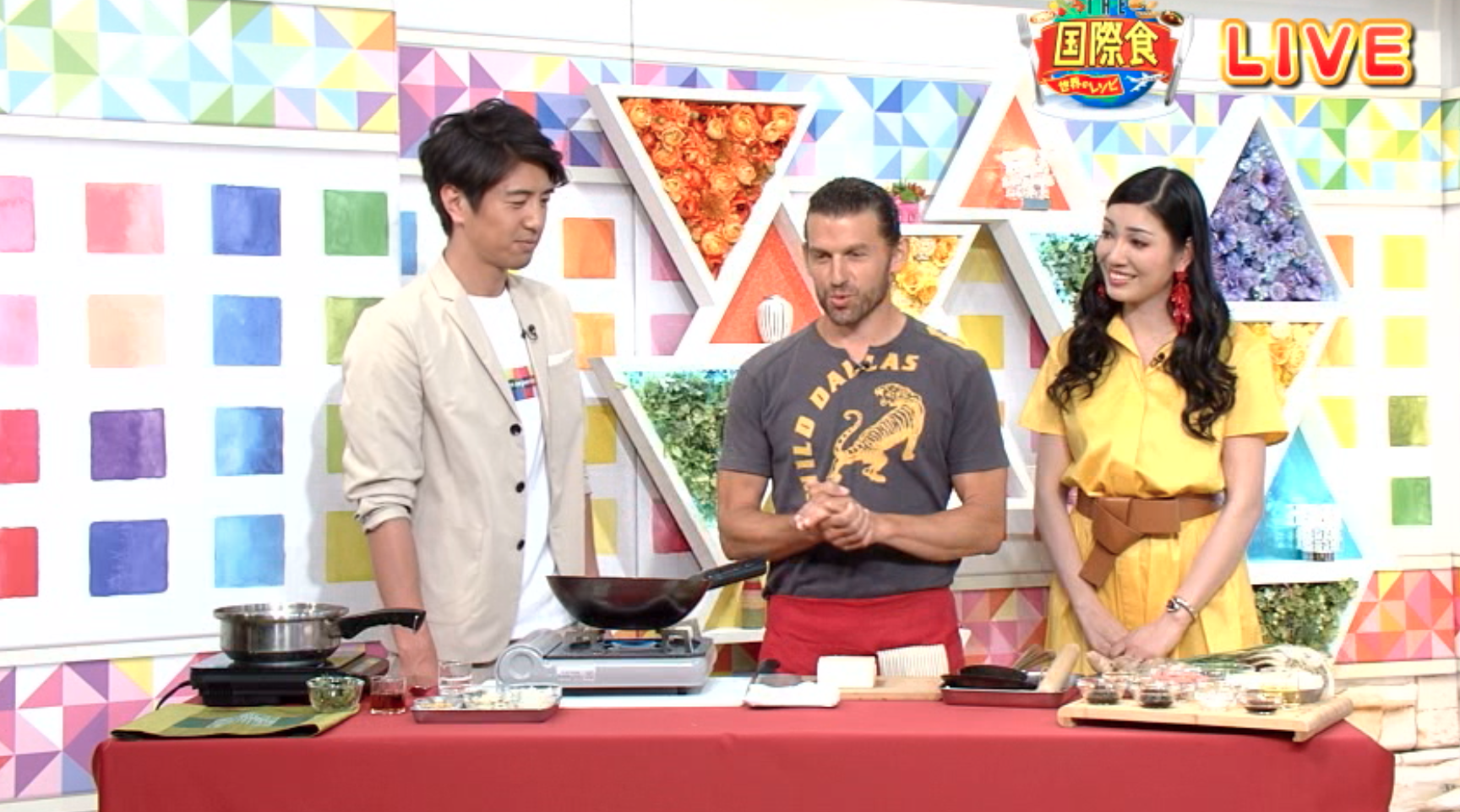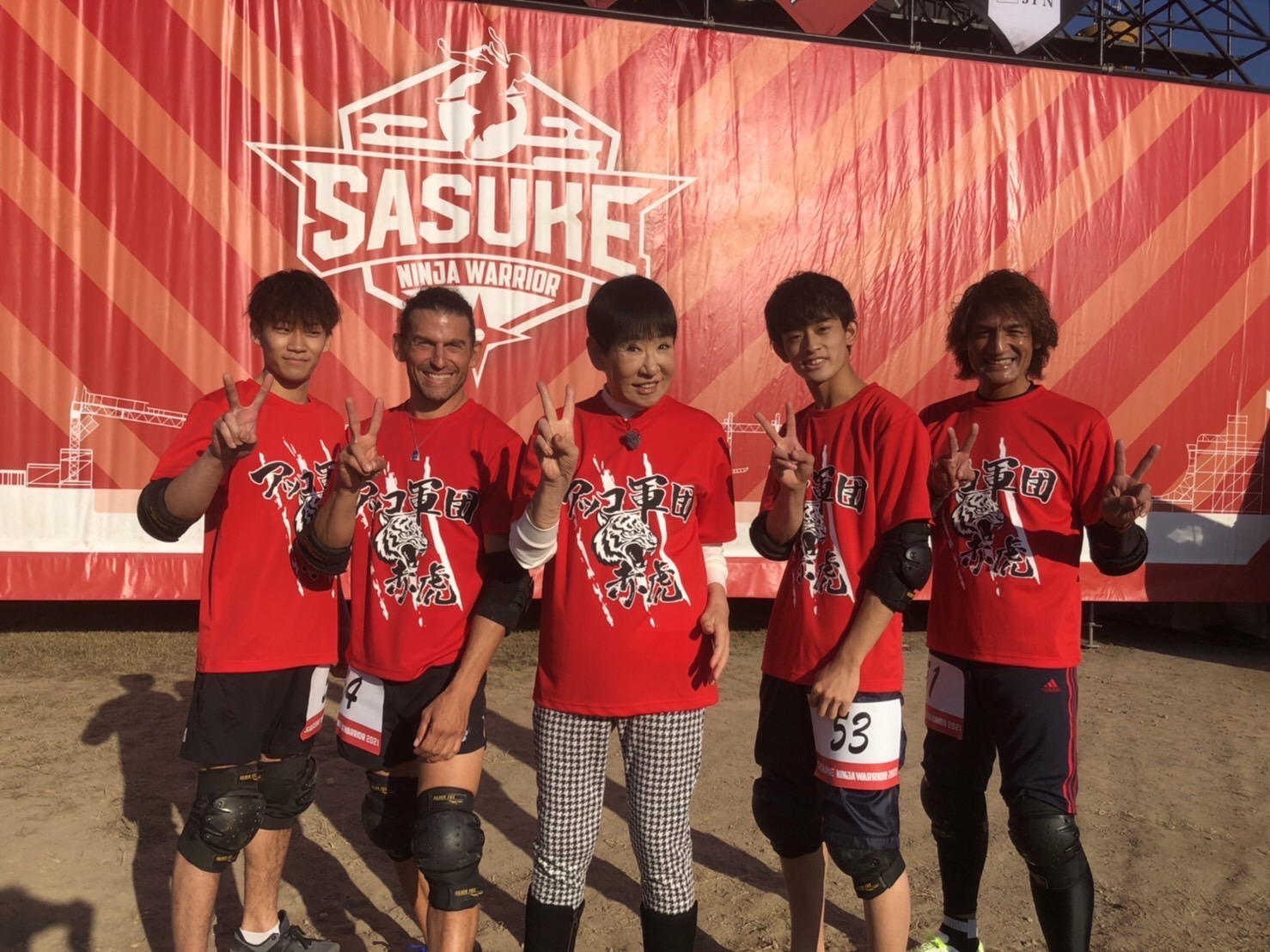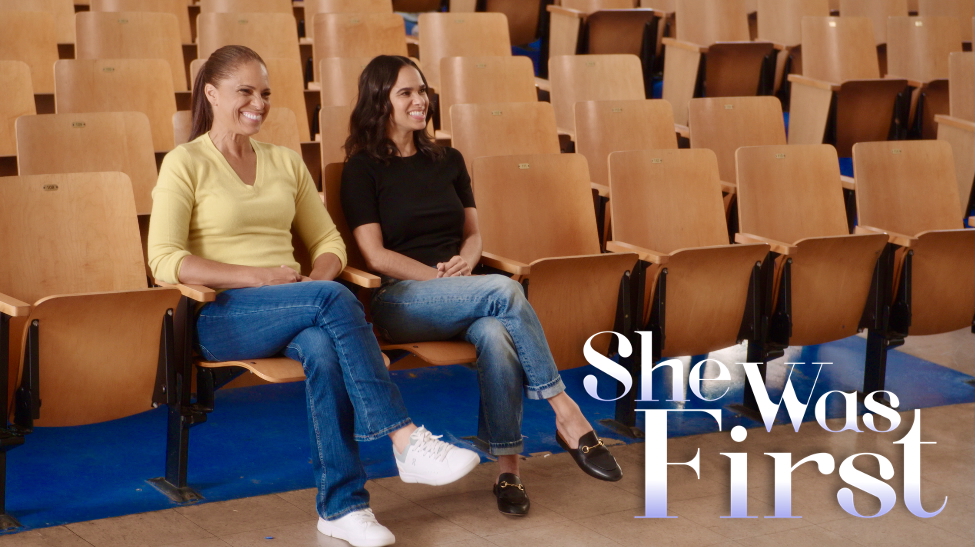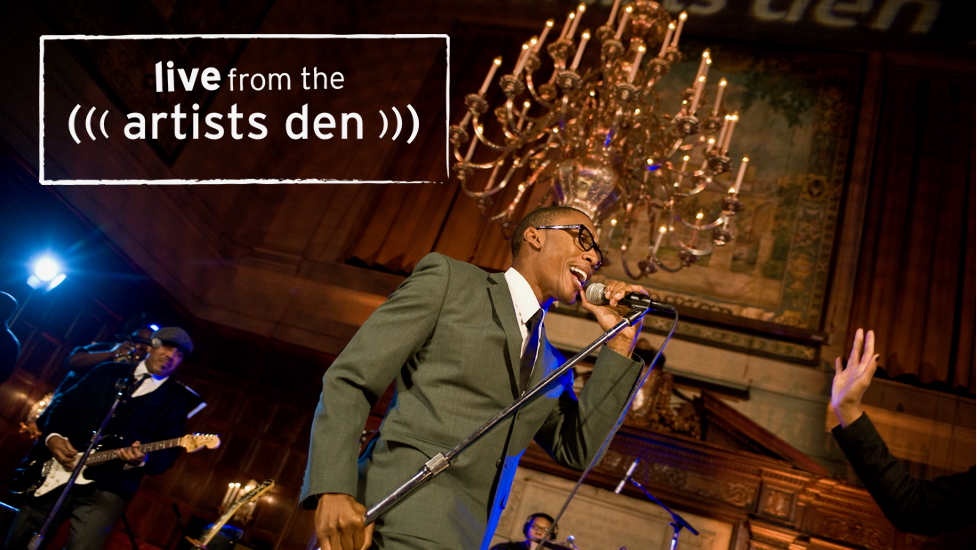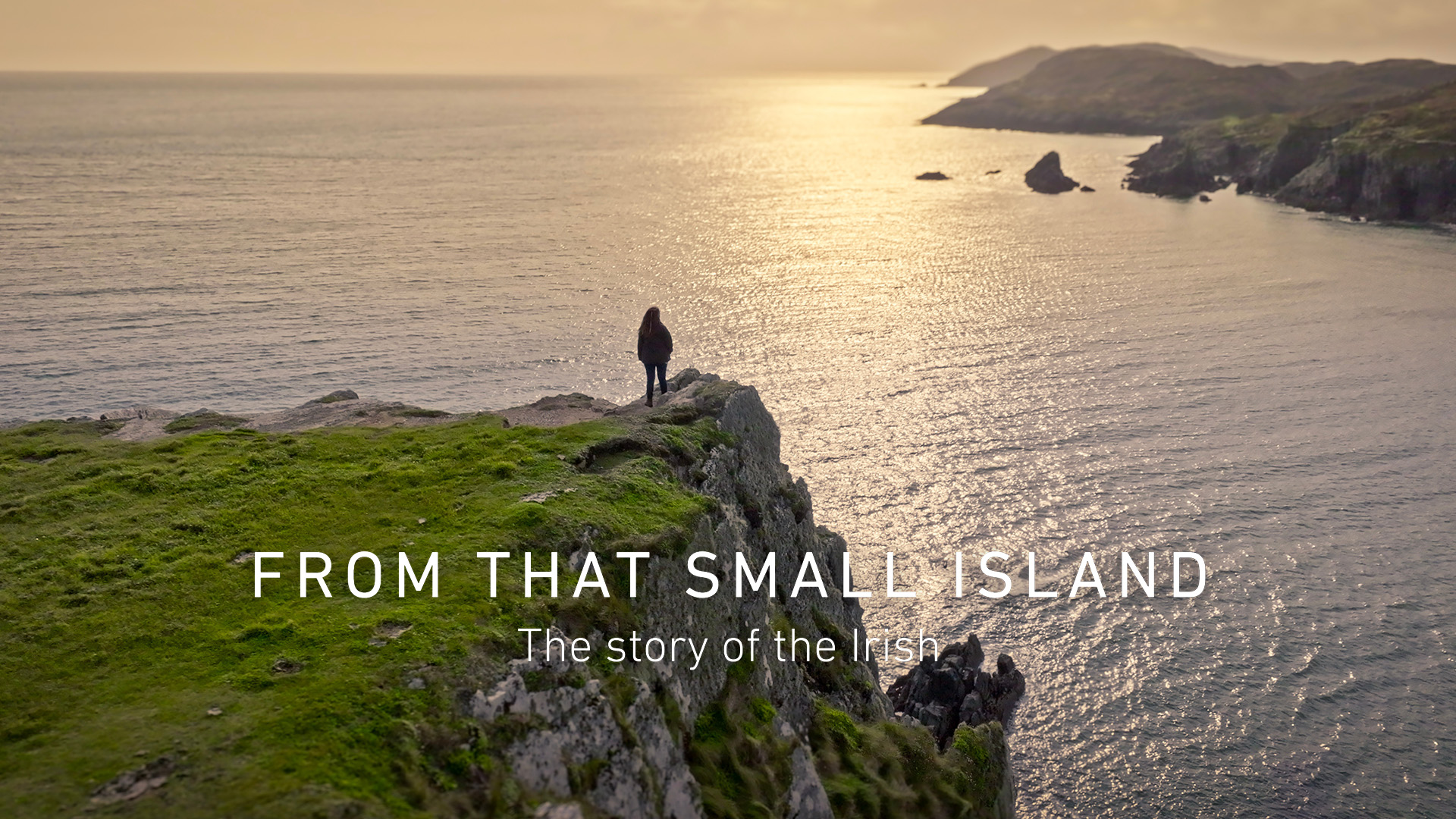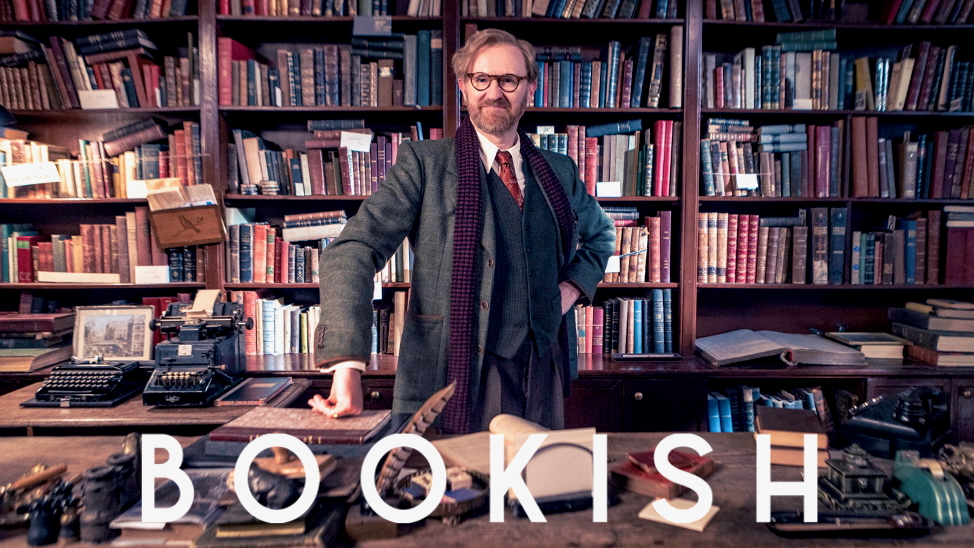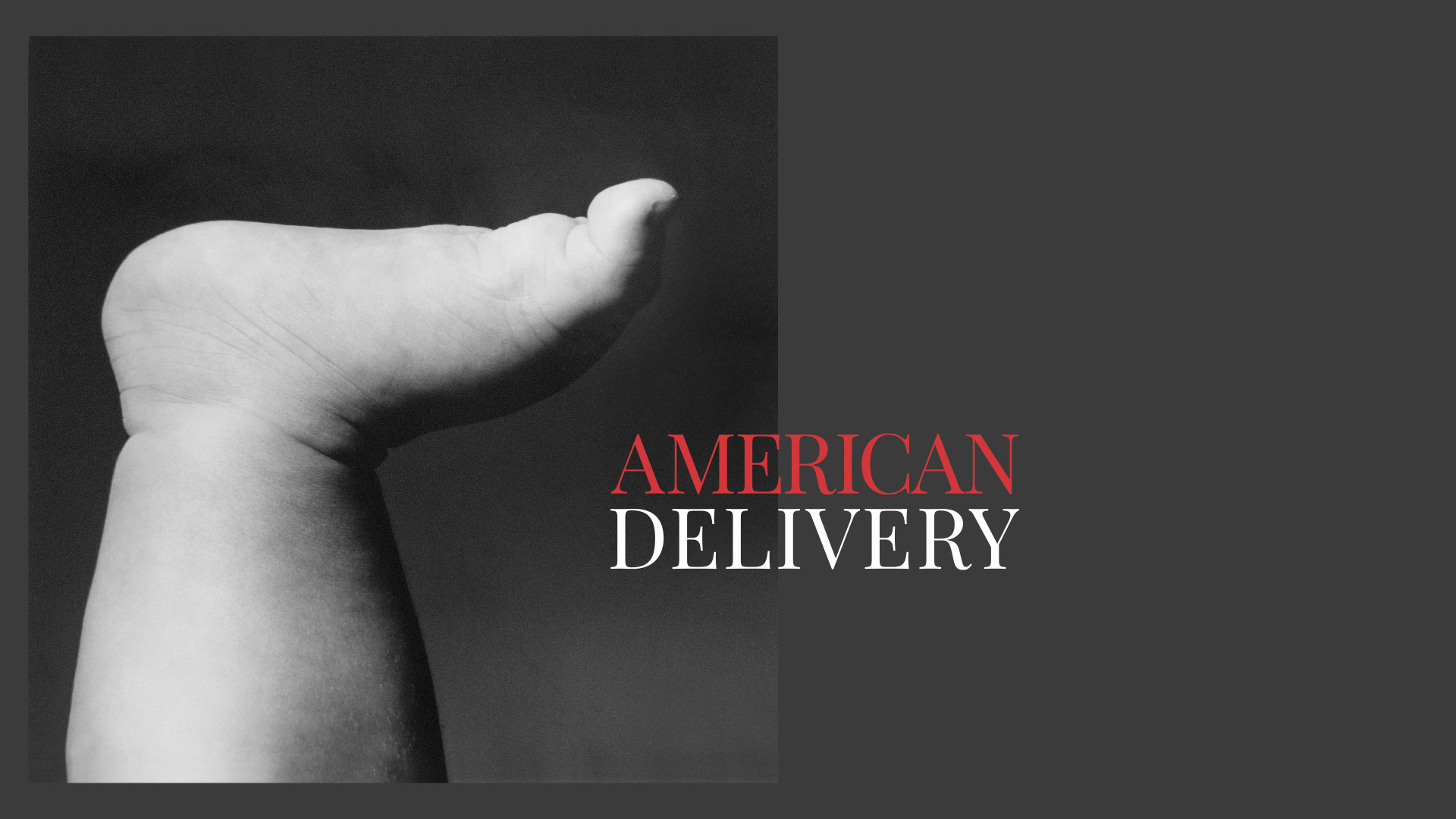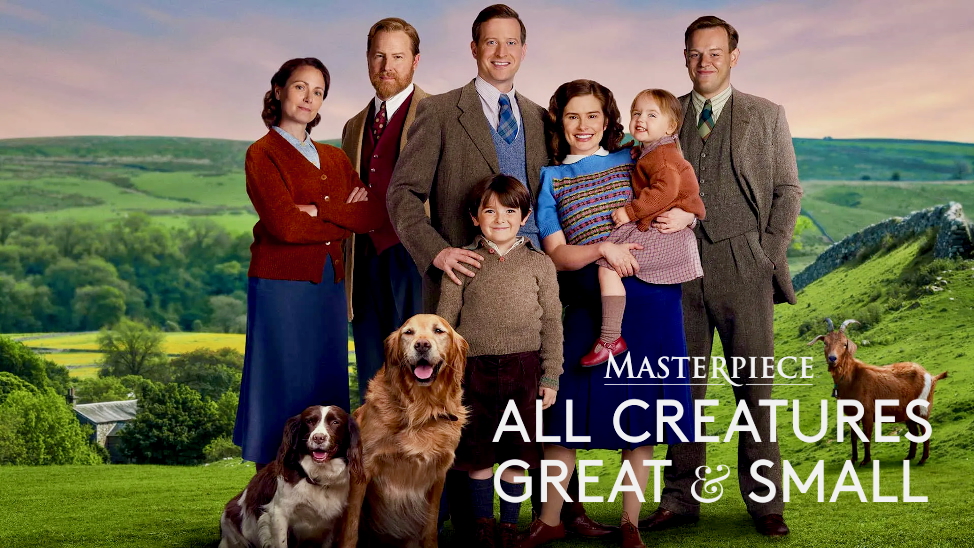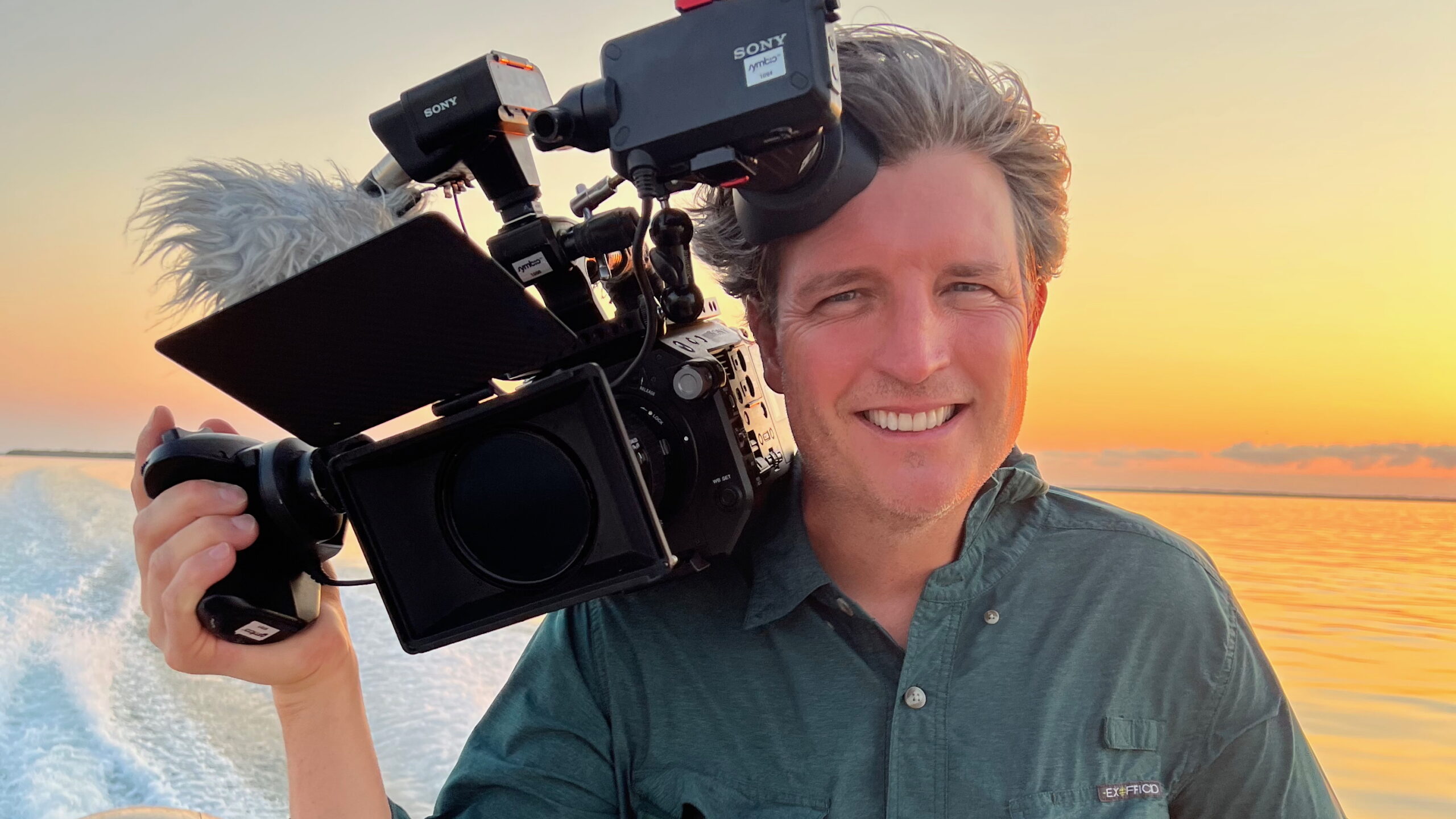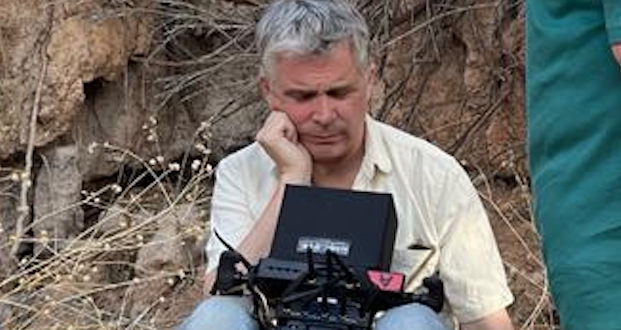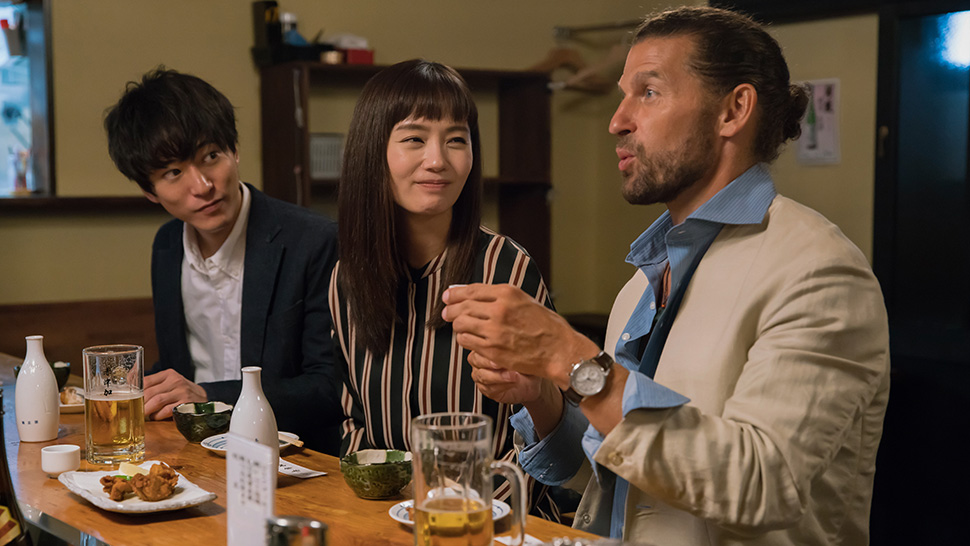American expat Michael Keida is, among his many accomplishments, a host on NHK World shows Trails to Oishii Tokyo and Journeys to Japan, which airs on KCLS’ CreateTV. We spoke to this chef, actor, writer, model and organic farmer about his journey to Japan, food, and his path to becoming a television personality in Japan.
How did you end up in Japan? And what made you stay?
MK: I had a chance while I was a university to study in Italy. Italian was my first second language. I had never expected in my teens that I would ever speak a second language, or third language, I didn’t think it was anything in the cards for me, but I had the opportunity to study in Italy. The experience of communicating in a foreign language was exciting, it opened up my eyes to another world, to learning more about other people; and I loved being around people. I love communicating, I love talking. And after that, while I was in university, I studied Arabic, and I started studying a little bit of Korean. I had a lot of friends from overseas, so I decided to spend a couple years overseas, and I was particularly looking into Asia. I was an avid break-dancer at the time. I spend half a year in Italy, but I moved to Korea for one year. I was in Seoul, and I was breakdancing and teaching English. It was nothing but that, and I had a great time. I planned on one year there and one year in another country and then go back to graduate school. I was originally studying psychology at university, as well as Italian. I happened to visit Japan over New Year’s holiday and was just really taken by Tokyo being lit up in the winter time. It’s so different, but also really inviting – Japan in general. Of course the hospitality and everything made me feel very welcome to come here. So I’d spend one year in Japan. But by chance I ended in the area I live now, which is called Hayama, an hour south of Tokyo by train. I started off as a kindergarten teacher at an international school here, but I fell in love with the community, the area that I’m in. And now, it’s been about 20 years.
Was that difficult? Learning to speak another language. Do you flub both languages because your brain is on two languages?
MK: I never find language to be necessarily difficult. I have a hard time studying, but I try to learn as a baby does. When I was here in Japan at first, I would go to Starbucks or local cafes and I would sit and listen to the conversations around me, and I would actually mimic what I heard(mumbling quietly). And of course it takes much longer to learn that way, but it’s a more natural way of learning. I had a phrase book, I had a couple books that I tried to study. But it was really about taking the small amount of Japanese that I was picking up and trying it every day. And I’m not embarrassed to make mistakes so I think that helps. I’d do monomane – I would imitate people, particularly men because I’d learned from others that if you learn from your girlfriend, you will start talking like a girl. That was the biggest advice from all the other expats, and friends here: “Don’t imitate a woman here, you’ll end up talking like a girl.” (laughs)
So I would literally imitate like how comedians imitate politicians. I would do it in the same intonations, the same mannerisms. And that helped me learn. First my ears would learn and I would teach my mouth how to say it. And then after that, I would start picking up the actual meaning of what was happening. But it took me about two years to be able to start going out to restaurants and ordering food, going to the grocery store. But by about two years, I had accumulated quite a few friends in the area. I never really found it difficult. It’s challenging, it forces you to trim down what you’re trying to communicate, and you usually communicate more positive stuff than negative stuff. I think it made me a little bit more of a positive person, because at the time, I wasn’t nearly as upbeat as I am now (laughs).
How did you land on this show Trails of Oishii Tokyo and on NHK World as an on-air personality?
MK: My first experience was a show called Tokyo Eye, which is no longer being produced. A guy visited my farm who translates for NHK and he’s like, “Hey, it might be just a few extra bucks in your pocket, but you might be interested in trying out this show. They invite various foreigners to go around taste Japanese cuisine.
It looked like a game show almost…
MK: There was a portion of it at the end, where you’re speaking to Chris Peppler, he’s an announcer; they would introduce different parts of Tokyo. But I started off in that show, and that was my first experience on TV. Then, after that, I learned of other NHK programs like Journeys in Japan, and I went directly to the producer and asked about that. But in Oishii Tokyo, one of the directors of Oishii Tokyo, he’s one of my drinking buddies in my neighborhood, and he had told me a couple years ago, “Hey I can introduce you to this show, I think you might enjoy it.” Turns out to probably be the best suited TV show for me, considering my food background.
Yes, you were on Journeys to Japan as well, so they move everyone around. In your bio on NHK, it says you’ve done cooking shows.
MK: I’ve had a couple live cooking programs, one of them was on a local Yokohama station, another one was a Tokyo station, and each week I would go in and I would bring produce from my farm and I would cook a different country’s cuisine, every week, which was pretty nuts. It was called Sundays Are Colorful, it was an LGBT positive program. And I’d cook Indonesian food one week and then Mexican food the next week. It was pretty wild.
I thought you did food shows in America!
MK: No, I’ve never done television in America, I’ve not had the opportunity. The first time I did a cooking show, I thought I was going to faint, because it was my first time doing live TV, and I was making homemade raviolis using wild edible onions. Actually, I love doing live TV programs now, but it was for the first experience doing live TV, and was really frightening. (laughs)
I bet foreigners who speak Japanese are seen as celebrities. Do you stand out and get treated in some special way because of this?
MK: In my town, most people see me as just Michael, the “foreignerness” doesn’t proceed me as much as in some areas, so it kind of depends on where I am. This is a point I make with my Japanese friends who ask me about it – I don’t wake up thinking, “Hey, I’m American, how great it is waking up being a white guy.” (laughs) It’s not part of my personal identity. My personal identity has to do with my farming, surfing, writing, my passions are who I am. And that’s how I prefer to be taken. But, yeah, on television of course, if I’m invited on those variety TV shows, I’m the American “expert” (laughs) even though I haven’t lived in America for 21 years, so I’m not really an expert anymore. But I’ve had a few opportunities more recently in my acting career, where I feel like I’ve broken through that wall of just being the foreign guy. But it’s taken a while, now my “branding,” I guess, is more farmer-actor, and that’s how people take me finally. Yeah, at first it was more of the “foreignerness,” the American-ness was much more in the forefront.
Are you a celebrity in Japan? And do all of the NHK World foreigners on TV know each other?
MK: I wouldn’t call myself a celebrity, I get noticed by people once in a while, but Japanese people wouldn’t typically call out to you (laughs). I know a lot of the other guys that work for NHK, the other reporters, but since I live outside the city, I don’t necessarily get together with them. I hang out with Pakkun sometimes, I met him through different friends. But typically we’ll meet either at auditions, or different shows. NHK also does dramas, and we’ve worked together on dramas. They have these educational programs as well that they do; there’s Kyle Card.
I love him as well; I wanted to interview you because you’re American, he’s Canadian.
MK: We chat once in a while. He’s a really nice guy. But most of those folks on NHK, they’re up in the city so I don’t necessarily see them privately that much.
What’s the favorite part of your job?
MK: My favorite part of the television work is the team work. It sounds strange, but I was never a team player, like I was a professional inline skater when I was a teenager, I was an aspiring professional snowboarder; I always did single player sports. And I have a hard time moving in accord with everyone else. When I see a group of runners on the street, I can’t imagine myself running with other people (laughs). I’m not a team player, and I always felt like that was a negative aspect of myself. But when you’re on a set of some sort, whether it’s a television show, or movie set, every person on set is essential, has their own craft, and we work in this – there’s a synchronicity, all of us working together, and we’re all working towards creating the vision of whatever program we’re working on. The folks I get to work with here in Japan, they’ve got such a strong work ethic, that it really pushes me to work hard, just the aspect of team play that occurs on a Japanese set. I know there’s a lot of people that talk about how the work hours are extremely long and harassment and stuff like that happens on Japanese sets, and they’ve made good strides to improve. Like, I’ve received call sheets that were 7 o’clock to 27 o’clock (laughs). I never knew there was a 27 o’clock until I got to Japan. I worked 23.5 hours before; it was on my 40th birthday. I was shooting a drama from 4 in the morning until 3:30 the next morning. It’s insane, but at the same time there were people, for example, the set designers, the lighting and the sound people, they were there before and after me. And none of them were complaining. To me that’s an incredible aspect of it that I enjoy, and there’s a of camaraderie that goes with it. I love being with folks on set. And if I have a long movie shoot that takes a couple weeks, or a couple of months, when it finishes, for the next couple days, I feel very lonely, because I’m not around all that energy and excitement. I think that’s probably my favorite part, the people.
I guess you love Japan, your farm, and don’t have plans to move back to the United States?
MK: Yes, that’s very much the case. I found a really nice community here. I’m very well connected with my neighbors, and I never experienced that to this degree living in the U.S. I always felt like something was missing and I believe that was what was missing – community. I feel like the richest person in the world with the community that I have. There are so many different events and experiences throughout the year.
Like we have the Omikoshi festival, where we carry the shrine on our shoulders though out town. Each area has a different set up and some of them happen in winter, and some in summer. Like we have ours in July, right after the rainy season. And we carry this extremely heavy shrine on our shoulders, and it’s the most grueling physical experience, for me it’s the experience that I’ve felt closest to God. All the folks in my community get together and we carry this shrine. It’s extremely heavy and extremely hot outside but we burden it together and help each other through it. And it’s just an incredible community-building experience. It builds social equity. There are a lot of those things that I have experienced here in Japan.
What do you mean by social equity?
MK: You’re investing in your neighbors and they’re investing in you. A lot of those cultural events, I think that’s a big aspect of them, keeping a strong connection between your neighbors.
You’re the only Trails to Oishii Tokyo host who always cooks something back at your home. Is that because you ask to?
MK: The first one I did was salt. I think they asked me. The first director Jogo-san, that I worked with on Oishii Tokyo, we were doing salt, she asked me if I would take it to my farm and incorporate the salt in different food. I was delighted because I’ve got the farm, I love cooking and being able to showcase that aspect of myself is really a treat.
You said you’re filming another episode next week, what product is it next week?
MK: Eggplant. There’s two different eggplants that originated from a certain area, and we’re going to go to that area. And they’re actually eggplants I grow. I grow 10 different varieties of eggplant, and the heirloom vegetables in general are more difficult to grow, and I actually have been having trouble with these eggplants. So it’s a perfect opportunity, I can go and visit farmers who are experts in these particular varieties. And so, I’m hoping to go and get some tips along the way. That’s the thing I love about doing this show, I get to learn from incredible chefs that I interview, but I also get to see professional farmers or fisherman or different artisans, how they produce the actual food itself. It just increases my toolbox ever more.
I find that much of Japanese food is using a combination of soy sauce, mirin, sugar and sake. In a way, it’s not that hard to make dishes. Would you agree?
MK: I would say that based on the fact that Japanese cuisine is simple in that way, it’s actually hard in the way that there’s a lot of nuance. You can’t just throw things in and make something good. You can make something decent. But I think there’s a lot more difficulty to Japanese cuisine than it would seem on paper. That being said, it is simple so you can use those four ingredients
What is a favorite dish you like to make that is healthy and easy?
MK: My cooking always has to do with what is currently in season. Not just the farm, but wild edibles, like when it’s mid-March through the end of April, I’m picking bamboo shoots almost every day.
Wow!
MK: I absolutely love bamboo shoots, and also wakame, seaweed is in season at that time. There’s a couple others, like butterbur; they grow these flowers, they’re called “fukinoto.” There’s just a lot of things in spring that are in season. And now at this part of the year, I’ve got potatoes, garlic, and onions coming up at the farm, as well as fava beans. So it just really depends on the season, whatever I’ve got. And actually, thanks to Oishii Tokyo, I’ve learned a lot about how important salt is, and I incorporate it, in a way that allows the vegetables’ natural flavor to come through. I don’t want to overpower them.
Did you say, salt and whatever the other ingredient you’re using?
MK: Yeah, like I try to keep it simple, so that the flavors of the vegetables come through. Japanese cuisine, I think they keep it pretty simple, and if you’re not tasting the corn or eggplant, if you’re not tasting the flavor of the actual vegetable itself, then you’ve done something wrong. (laughs)
Do you get any feedback from Americans here watching your shows on Create, on Public Media?
MK: Yeah, once in a while, I’ve gotten either comments or direct messages and then sometimes when I’m in Tokyo shooting programs, visitors from overseas have found me on the street. “NHK!” There was a woman in Tokyo at Tsukiji, and we were actually just taking a break for lunch, and this lovely woman and her family came up and said, “Hello” and said they watched all the time, and asked for a photo and then she asked me for where should she go to eat to lunch, and I apologized because I don’t know the good restaurants to go to in Tokyo, so I couldn’t help her.
The chef’s I’ve interviewed, they’ve all had a Julia Child story or that she influenced them, do you have one?
MK: Julia Child! (Michael says in her voice and laughs) No, Julia Child, I remember her but I honestly don’t like watching cooking shows, I know it sounds really bizarre, but I don’t like watching other people doing the things that I love to do. I don’t like watching snowboarding videos I don’t like watching cooking shows, I never did. If I have the time to watch it, I should be doing it. Like my dad would throw on Emeril Lagasse back in the day. I get antsy and run to the kitchen as soon as I saw a show on TV. I’d rather be doing it.
What’s the most frequent question you get? And what’s your answer?
MK: It’s always the “Where are you from?” “Why Japan?” Japanese people always want to know what it is that we admired about Japan and I’ve already answered that for you, it’s the community here. And it’s the community that exists outside of the big cities. I don’t think any of my friends in Tokyo have the same experience that I’m getting out here in the boondocks.
Do ever pinch yourself that you get to do all this for a living, and this is your life?
MK: I made a decision 12 or 13 years ago that I would stop working for other people. It was a turning point in my life, I had meditated for a couple years, meditating, writing down my dreams. I was trying to figure out what it was that I was supposed to be doing in my life. I came up with: I need to be self-driven, I need to believe in myself 100 percent and I quit all work that I was getting from outside. As cliché as it sounds, I pinch myself because I am making a living doing what I love. I look forward to going to work every day. I work pretty much 365 days a year (laughs), and I love working. I love doing what I do. I get to go to the farm one day, I get to go to a shoot the other day, I get to work with different actors, different artisans. I meet so many different people. So, yeah, I pinch myself that I’m doing what I want to be doing. I pinch myself that I look forward to work every day.
What’s a typical day, and what do you do when you are not on the show?
MK: I wake up at 4 o’clock, I have coffee. I roast my own coffee, I roast coffee once a week, but the other days I’m just brewing it. I write in the morning. I teach farming, I have a farming school that I started a year ago; I’m in my second year. I teach adults farming. I make these presentations for them, I end up making like a YouTube format to teach how to prepare soil, the backgrounds about different seeds, and how to propagate seeds. So I write those and I also write movie and TV scripts. I spend the first two to three hours in the morning writing, and then once it gets light out, I go for a jog. I run a 10K 365 days a year. I run if I’m sick, hung over, no matter what, I run 10K every single day. That’s my reset button. After that, I go to the farm, I play with my goats, I deliver vegetables, depending on what the season is, whatever the work needs to be done at the farm, and then usually after dinner I watch a drama or movie and go to bed about 9-9:30. I get to bed pretty early.
To learn more about Michael and his many endeavors follow him on his socials: Instagram, X/Twitter, or check out his farming tutorials on YouTube.
Trails to Oishii Tokyo is an NHK World Japan documentary series that explores Japanese food culture by following reporters as they journey from Tokyo’s fresh food markets and airs Sundays at 7AM on KLCS’ CreateTV. Journeys in Japan is an travel series that features English-speaking visitors exploring Japan’s unique culture, historic sites, and off-the-beaten-path destinations; it airs Sundays at 7:30AM on KLCS’ CreateTV.

